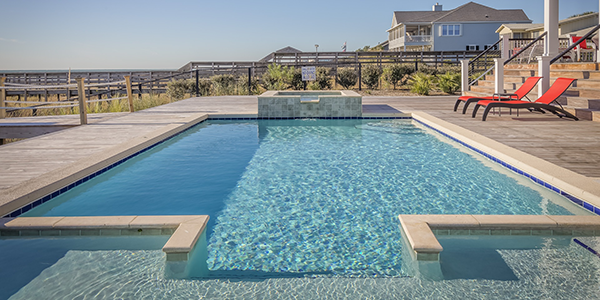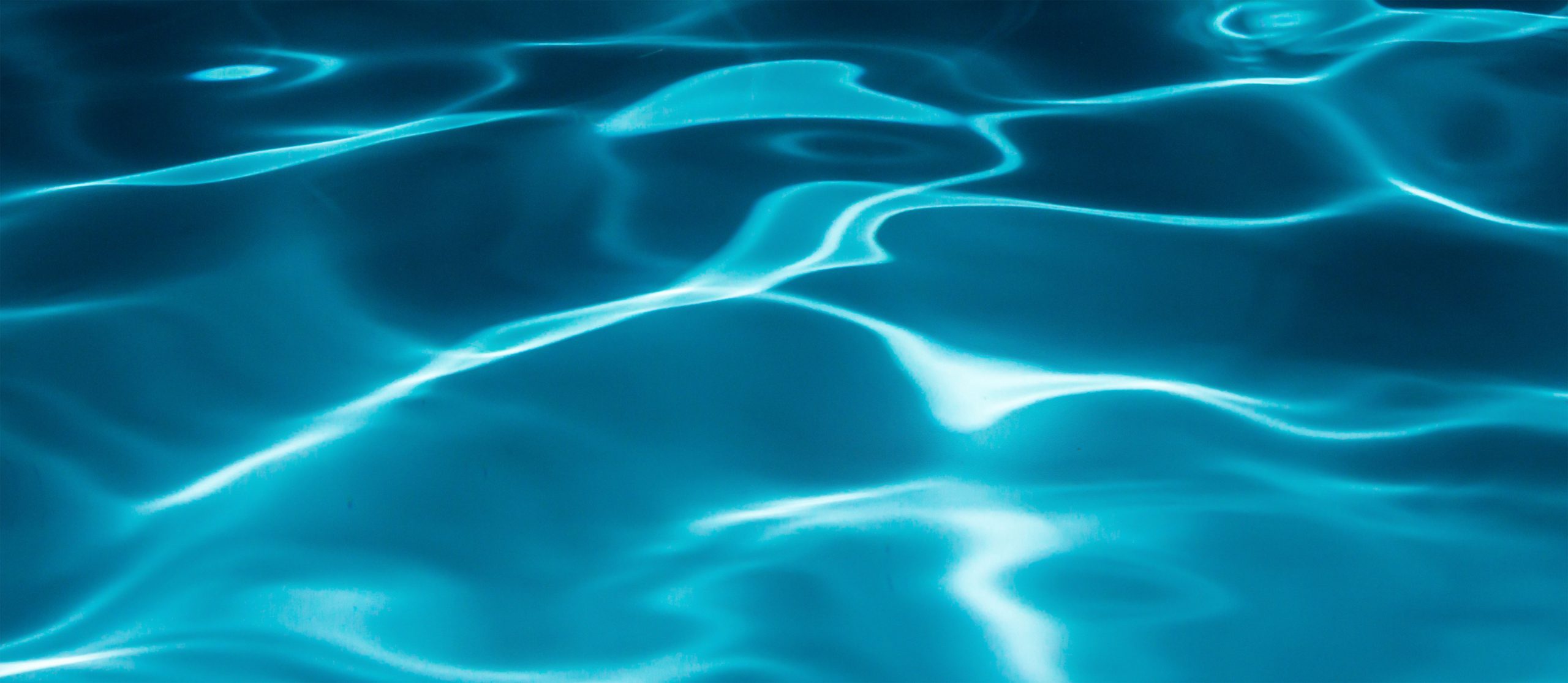Use These 2 Keys to Unlock a Cleaner, Healthier Pool
- July 22, 2020
- Blog, Uncategorized,

Does anyone actually like using liquid or granular chlorine? Some people might have a certain nostalgia for that strong pool smell in the summer, but the rest of us would prefer it if our eyes and lungs were left alone from the harsh chemical sting. Luckily there’s another method to sanitize our pools.
Here’s the key: salt.
“But wait,” you might ask, “doesn’t salt belong in the ocean and not in our pools?” Not anymore. If you’re picturing a pool that tastes like an ocean, that won’t happen. The ocean’s salinity is 35,000 parts per million — a saltwater pool has a little less than a tenth of that amount of salt.
Pool science has really caught up in the last few years, and saltwater pools are the latest, greatest way to keep your pool clean. Your pool gets even cleaner, and maintenance gets even easier, when you combine saltwater chlorination with an ozone generator, or “ozonator.”
Why Combine a Salt Chlorine Generator and Ozonator?
If you have a concrete pool and you want your swim to feel as pure and silky smooth as possible, this is it. You get the best of all worlds when you combine both these solutions. Here’s the full list of benefits you’ll notice when you combine salt chlorination and ozone purification in your pool setup:
- More chemically pure water ensures a safer and healthier swim
- More comfortable swims in cleaner, clearer, and smoother water
- More oxidants = more free chlorine = fewer chloramines = less smell
- No more need to add harsh chemicals that irritate your skin, lungs, and eyes
- Chlorine stays active for longer because it doesn’t work as hard to oxidize germs and organic matter
- Fewer chemical costs
- Less maintenance
- Longer-lasting purification systems
How Do Salt Chlorine Generators Work?
A lot of people use salt to clean their pool, and more pool owners see the light every day. It sounds like the stuff of science fiction. Exactly how does salt clean a pool? And why choose salt over chlorine?
The answer is a little more complicated than that, because you’re actually not removing chlorine from the equation. Thanks to modern science and technology, it’s all completely possible and completely safe.
Let’s go back to high school chemistry class for a minute. Salt contains equal parts of the elements sodium and chlorine (NaCl)to form the ionic compound sodium chloride. Sodium chloride is safe enough to store on your dinner table and sprinkle on your food. But chlorine on its own is an incredibly volatile and poisonous gas in its natural state. On the other hand, chlorine is also a great cleaning agent for pools because it creates a bunch of byproducts that help kill germs when added to pool water.
So, if chlorine is so dangerous, why are we able to use it in our pools and nothing bad usually happens? Thank the manufacturers for that, because they use a process called electrolysis. Electrolysis applies a direct electrical current to a saltwater brine to create a chemical reaction. The reaction safely extracts ions from salt until chlorine and sodium are totally separated, then stabilized through other processes. Then the chlorine is safe for transport to your local pool store (that’s us), your doorstep, and finally your pool.
A salt chlorine generator applies that same high school chemistry, but on a much smaller scale that’s fit for your backyard setup. A generator fits into your filtration setup right after the filter, or the heater if your pool has one. Salt is added to the filtered pool water immediately once it’s pumped through the generator. Then the generator uses electrolysis to separate the sodium from the chlorine gas, which then combines with your pool water, and voila — a chlorinated pool!
The most noticeable benefit of a salt chlorine generator is that it’s easier to maintain for the average concrete pool. Since the generator and automator work to dispense salt at a consistent rate, you won’t have to manually add chlorine anymore. Better yet, salt chlorine generators can completely take over as your main source of chlorination, reducing your chemical usage by as much as 60%. The water’s also softer, which is a huge plus if your eyes or skin are easily irritated by chlorine.
How Do Ozonators Work?
If you really want to kick your pool cleaning quality up a notch, then adding an ozonator to your pool’s rig is the right way to go. Ozone (O3) is found in our planet’s atmosphere, but it’s also a very powerful oxidizer — an essential chemical process to neutralizing germs and organic matter in your pool.
With an ozonator, you’re constantly oxidizing your pool by filtering water with ozone. Oxidation makes pennies green and bike chains rust, but it also removes electrons from germs and further degrades them.
Ozonators increase the efficiency of your chlorination process, regardless of how you extract the chlorine. That means you seriously cut down on that classic, gross pool smell. Since an ozonator is constantly oxidizing your water, that leaves more free chlorine to act on your pool. More free chlorine means fewer chloramines, or byproducts of chlorine reactions, which cause the smelly pool effect.
How Can I Use These in My Pool?
Applying a salt chlorinator and ozonator is fairly simple — as long as you have the appropriate space and piping to add them to your pool purification rig. If you’re tired of smelly, uncomfortable pool water, let us know how we can help you install these systems and bring more satisfaction to your swims and brighten up your home’s swimming pool!


